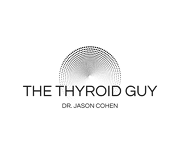What are the Treatment Options for Fecal Incontinence?
Treatment for Fecal incontinence depends on the underlying cause and the severity of the condition. Common treatment options include:
Lifestyle and Dietary Changes
- Dietary Modifications: Increasing fiber intake can help regulate bowel movements and reduce diarrhea. Avoiding caffeine, alcohol, and spicy foods can also help.
- Regular Exercise: Strengthening the pelvic floor muscles through exercises such as Kegels can improve muscle control.
- Bowel Training: Establishing a regular bowel movement schedule can help manage incontinence.
Medications
- Anti-Diarrheal Medications: Medications such as loperamide (Imodium) can help control diarrhea and reduce leakage.
- Stool Softeners: For individuals with chronic constipation, stool softeners can make bowel movements easier to pass.
Medical Interventions
- Biofeedback Therapy: This technique helps individuals learn how to strengthen and coordinate their pelvic floor muscles.
What are the Surgical Procedures for Fecal Incontinence?
When conservative treatments fail, surgical options may be considered. Common surgical procedures include:
- Sphincteroplasty: Repairing a damaged anal sphincter muscle to improve muscle control.
- Colostomy: Creating an opening in the abdomen to divert stool into a bag, used in severe cases where other treatments have failed.
- Sacral Nerve Stimulation: SNS surgery involves implanting a device that stimulates the sacral nerves, which control bowel movements. This treatment can significantly improve symptoms in individuals with incontinence. The recovery time for sacral nerve stimulation varies but typically involves a few weeks of limited activity
Sacral Nerve Stimulation for Bowel Incontinence
Sacral nerve stimulation (SNS) is a minimally invasive procedure used to treat fecal incontinence. The sacral nerve stimulator implant is placed under the skin in the lower back, and it sends electrical impulses to the sacral nerves to help control bowel movements. This procedure has been effective in reducing symptoms in many patients.
Benefits of Sacral Nerve Stimulation
- Improved Bowel Control: Many patients experience significant improvement in bowel control and a reduction in leakage episodes.
- Minimally Invasive: The procedure is less invasive than other surgical options, with a shorter recovery time.
- Reversible: The device can be removed if it is not effective or causes side effects.















